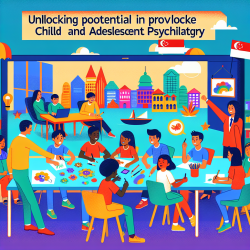Introduction
In a world where over 50 million individuals are affected by dementia, the urgency to find effective treatments and early detection methods is paramount. By 2050, this number is expected to triple, placing an immense burden on caregivers and healthcare systems. Recent advancements in artificial intelligence (AI) offer promising solutions to these challenges, providing innovative tools for diagnosis, prognosis, and care. This blog explores the transformative impact of AI in dementia research and its potential applications in clinical practice.
The Power of AI in Dementia Research
AI technologies, particularly machine learning and deep learning, are at the forefront of dementia research. These technologies enable the analysis of complex datasets, such as neuroimaging, speech, and genetic information, to identify patterns indicative of cognitive decline. The applications of AI in dementia research can be broadly categorized into three areas:
- Cognitive Screening and Training: AI-driven apps and tools provide accessible methods for early detection of cognitive impairment, allowing for timely interventions.
- Diagnosis and Prognosis: AI algorithms enhance the accuracy of dementia diagnosis by integrating diverse data sources, including biomarkers and imaging data.
- Dementia Care and Interventions: Social robots and AI-assisted technologies offer support and companionship to individuals with dementia, improving their quality of life.
Implementing AI in Clinical Practice
For practitioners, incorporating AI into clinical practice can significantly enhance diagnostic accuracy and patient outcomes. Here are some steps to consider:
- Stay Informed: Keep abreast of the latest AI developments in dementia research. Attend conferences, webinars, and workshops to learn from experts in the field.
- Collaborate with Data Scientists: Partner with data scientists to develop and implement AI models tailored to your clinical needs. This collaboration can lead to more effective and personalized patient care.
- Utilize AI Tools: Integrate AI-driven tools and applications into your practice to streamline cognitive assessments and monitor patient progress.
- Encourage Further Research: Support and participate in research studies that explore new AI applications in dementia care. This involvement can contribute to the development of innovative solutions and best practices.
Challenges and Future Directions
While AI offers significant potential, challenges remain in its clinical application. These include the need for standardized datasets, ethical considerations, and the integration of AI into existing healthcare systems. Future research should focus on addressing these challenges and exploring new avenues, such as digital biomarkers from wearable devices, to further enhance dementia care.
Conclusion
AI is revolutionizing dementia research, offering new hope for early detection, accurate diagnosis, and improved care. By embracing AI technologies, practitioners can enhance their skills and provide better outcomes for their patients. For those interested in delving deeper into the applications of AI in dementia research, the original research paper titled Applications of artificial intelligence in dementia research offers a comprehensive overview.










